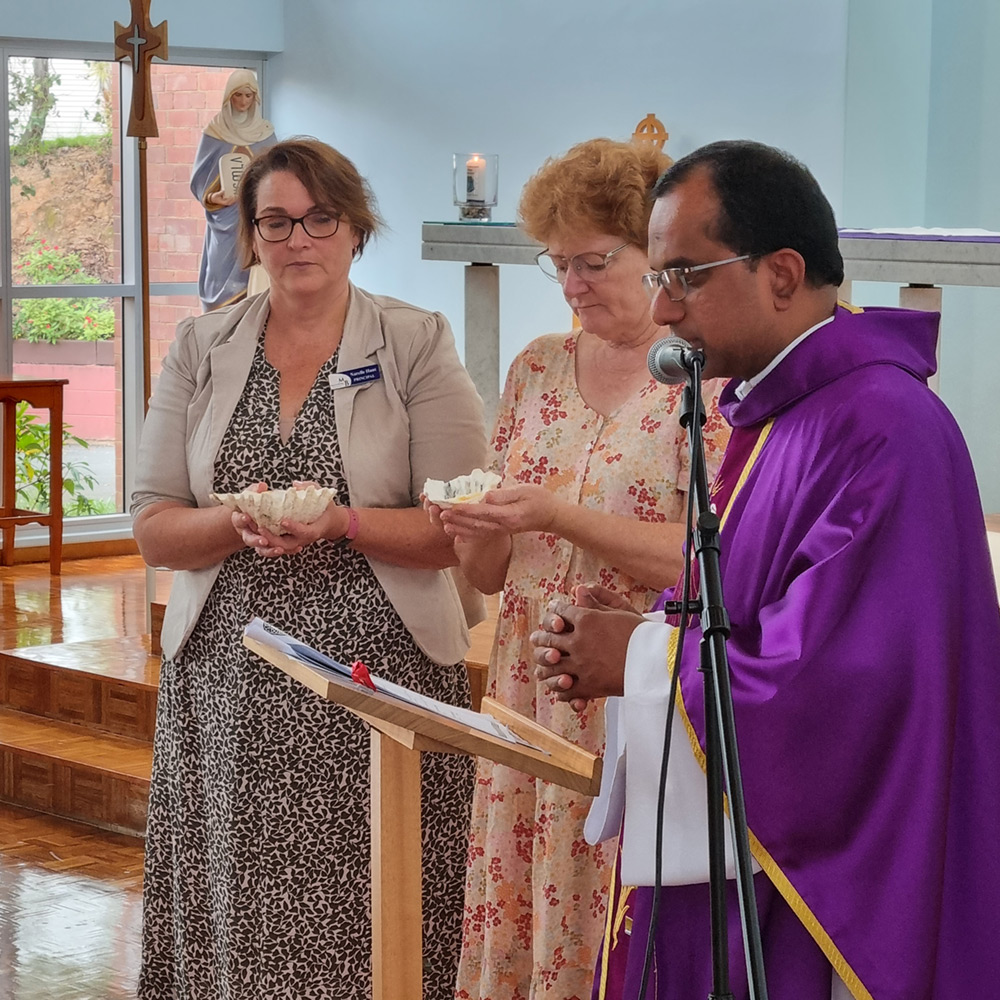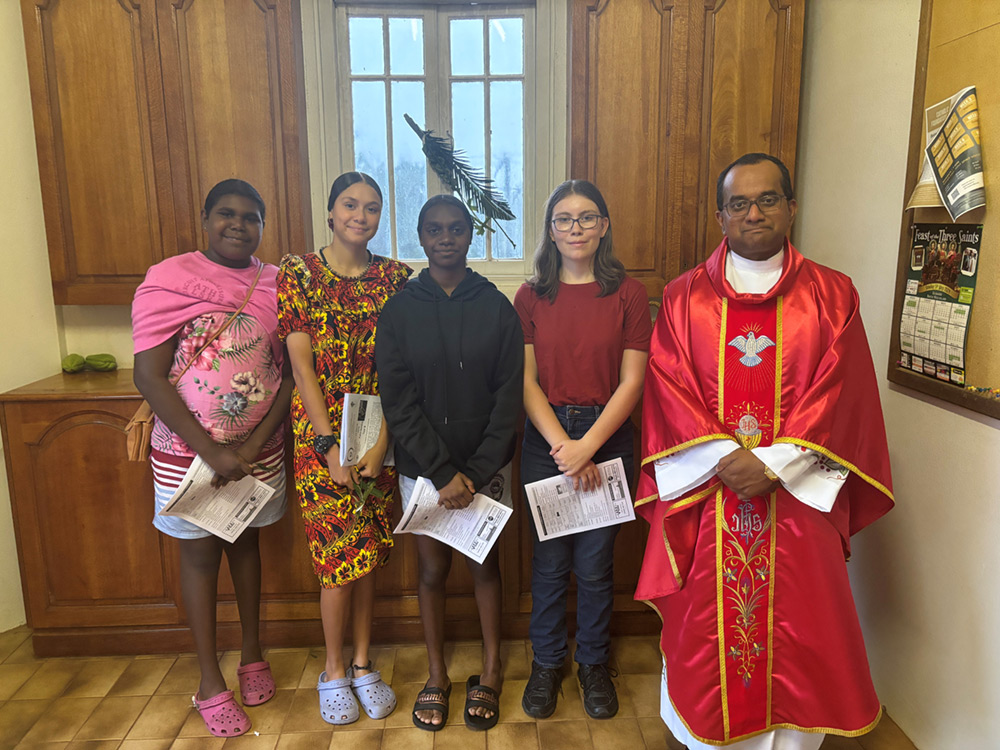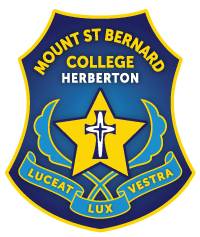See Also:
Religious education at Mount St Bernard College seeks to develop the religious literacy of students in light of the Catholic Christian tradition, so that they might participate critically and authentically in contemporary culture. Students become religiously literate as they develop capacities and skills of discerning, interpreting, thinking critically, seeking truth, and making meaning (National Catholic Education Commission, Framing Paper: Religious Education in Australian Catholic Schools, 2018).
The formation of students extends beyond the intellectual to encompass the moral and spiritual development of the whole person. Class prayer, participation in Masses in the College Chapel on significant holy days and for College celebrations, liturgies to celebrate various liturgical seasons and community events, and Christian service-learning opportunities are key features of College life.
As part of the Cairns diocese, we use the Religion Curriculum P-12: Archdiocese of Brisbane which is organised into four interrelated strands: Sacred texts, Beliefs, the Church and Christian life.
Sacred texts
The Sacred Texts strand comprises three distinct yet interrelated sub-strands:
- Old Testament
- New Testament
- Christian Scriptural Writings and Wisdom
Beliefs
The Beliefs strand comprises three distinct yet interrelated sub-strands:
- Trinity: God, Jesus the Christ, Spirit
- Human Existence
- World Religions
Church
The Church strand comprises three distinct yet interrelated sub-strands:
- Liturgy and Sacraments
- People of God
- Church History
Christian life
The Christian Life strand comprises three distinct yet interrelated sub-strands:
- Moral Formation
- Mission and Justice
- Prayer and Spirituality
Each strand has its own distinctive body of knowledge; however, classroom learning and teaching balances and integrates all four strands. This curriculum challenges students to be a religious voice in the world and to critically interpretate and evaluate their present-day cultural context.
The senior school offers two options for students. The General Subject, Study of Religion, encompasses the disciplines of Theology, Sociology, Philosophy, and Ethics, and explores the key beliefs, worldviews, rituals, and ethical systems of major world religions. The Applied Subject, Religion and Ethics, allows students to explore values and life choices and the ways in which these are related to beliefs and practices as they learn about religion, spirituality and ethics. In addition, it enables students to learn about and reflect on the richness of religious, spiritual and ethical worldviews.
Religious Education teachers undertake accredited professional development to ensure their teaching techniques reflect current best practice. They are required to renew their accreditation to teach Religious Education every four years.







